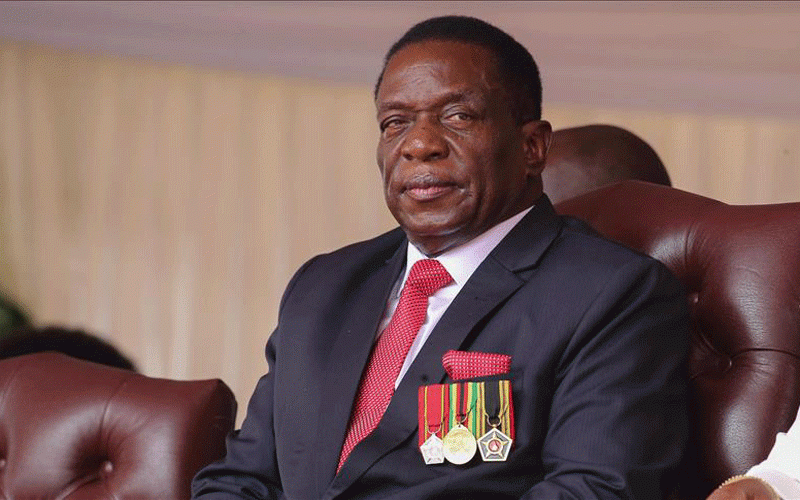
A DEMOCRATIC Zimbabwe cannot be built on undemocratic processes like violation of the Constitution, Zanu PF policy bankruptcy, violence, lack of respect for the rule of law and violation of human rights.
President Emmerson Mnangagwa’s government must abide by the Constitution and allow the opposition to campaign freely.
Zimbabwe cannot afford to have another disputed election.
Our democracy can be richer and stronger if every political party in the country is given fair access to the media and allowed to campaign freely.
In terms of political repression, arresting of political opponents, poor governance, banning of non-governmental organisations, mutilation of the Constitution, the Zanu PF government under the second republic has broken the record.
In November 2017, Mnangagwa popularised the refrain: “The voice of the people is the voice of God”, literally meaning that whatever people cried for he was supposed to incline an ear.
Today, Mnangagwa has shifted goalposts and has become the Idi Amin of Zimbabwe.
Currently, the regime is using dirty tactics like instructing the Zimbabwe Republic Police to ban opposition Citizens Coalition for Change (CCC) campaign rallies and meetings.
- Mavhunga puts DeMbare into Chibuku quarterfinals
- Bulls to charge into Zimbabwe gold stocks
- Ndiraya concerned as goals dry up
- Letters: How solar power is transforming African farms
Keep Reading
Those in power say CCC is a structureless party, but they deploy armed riot police to block its rallies.
The Zanu PF government knows that it has no political clout and has run out of ideas to lure the electorate.
By stopping Nelson Chamisa from holding campaign rallies, imprisoning his supporters and weaponising the law, the regime is actually scoring own goals.
For the past 20 or so years, we have missed every opportunity to develop Zimbabwe because of political bickering and resistance to change.
What we are witnessing right now in the country are symptoms of a failed economy.
It’s all cheap propaganda that the Zanu PF government is signing mega deals, investors are flocking into the country and that the country is open for business.
The financial sector is now a pale shadow of what it used to be. What brought down the economy needs to be addressed.
There is no country in the world that has managed to make its economy flourish amid political instability, and where the opposition is treated like an enemy of the State.-Leonard Koni
Bring back lustre in cotton sector
COTTON has a history of uplifting farmers in marginalised communities, especially in the period before 2018 when the multi-currency system was in place (when the cost of cotton per kg was ranging from US$1,42 to US$1,51 per kg between 2015 and 2017) prior to the reintroduction of the multi-currency system, which saw farmers being paid in local currency.
However, cotton prices tumbled over the years and farmers have had to bear bankruptcy.
While cotton remains the only cash crop which many in the Midlands and Masvingo region can grow, due to low rainfall patterns, many cotton farmers continue to sink deeper in poverty as a kilogramme of cotton fell to below US$0,50.
As if that is not enough, the payment does not come on time.
This is against the call by farmers’ unions, particularly Zimbabwe Farmers Union, demanding that farmers receive full payment for their product in cash, mobile money, bank transfers.
Time value of money has not been considered by the poorly-resourced Cotton Company of Zimbabwe when making payments.
Cotton farmers continue to lose value of their cotton produce as they endure not only delayed payments (vis-à-vis ballooning inflation in local currency), but also payments in the form of grocery.
Evidence shows that Zimbabwe’s cotton price on the international market has fluctuated over the years, where a kg was US$1,51 in 2017, US$1,49 in 2018, US$1,16 in 2019, US$1,26 in 2020, US$1,33 in 2021 and US$1,30 last year.
However, in spite of such fluctuations, Zimbabwe has continued to generate relatively high foreign currency returns from the crop.
Trade statistics on Zimbabwe cotton exports show that cotton is one of the major foreign currency earners and Cabinet confirmed this in June 2022 when it announced to the nation that cotton was now treated as an export crop like tobacco.
In 2019, cotton generated approximately US$36,9 million, US$26,5 million in 2020, US$79,9 million in 2021 and US$41,3 million last year.
Zimbabwe’s main cotton export destinations are Mauritius, Colombia, Lesotho, Botswana and United Arab Emirates.
Government is commended for launching the National Presidential Cotton Input and Tillage scheme covering the period 2016 to 2022, paving way for approximately 400 000 households to receive inputs such as cotton seeds and fertilisers from government.
Resultantly, cotton output significantly peaked from 10 800 metric tonnes (mt) in 2016 to 116 053mt in the 2020/21 season, while export revenue grew from US$4,5 million in 2016 to US$85 million in the 2017/18 season.
It is worrisome, however, to note that this has not yet changed the fortunes of many cotton farmers.
If anything, cotton farmers are worse-off due to unrealistic producer prices, and trade injustices in the sector.
Rampant corruption has not spared the cotton sector. Instead, it has undermined the cotton value and supply chains, thereby relegating the farmers to the periphery.
The cost of corruption continues to weigh heavily on struggling cotton farmers.
Late payments, payment in the form of grocery coupled with a lack of an alternative cash crop to grow has plunged some cotton farmers in debt and poverty as they are left with no choice but to borrow so that they are able to meet the losses they incur in producing cotton while hoping for better returns in each season.-Zimbabwe Coalition on Debt and Development
Unpaid care, domestic work needs recognition, representation
UNPAID care and domestic work (UCDW) should be recognised, reduced, redistributed and represented from a young age.
On January 27, 2023, Women's Academy for Leadership and Political Excellence (Walpe) with support from Oxfam Zimbabwe conducted male engagement sessions in Norton with the aim of enlightening and getting insights into men’s perspectives on gender equality and UCDW.
One hundred men were engaged in the dormitory town, in their various comfort places such as beerhalls, sports bars and open spaces where they can converse freely.
UCDW is household work which includes cooking, cleaning, doing the laundry, taking care of children, the sick and elderly as well as fetching firewood and water.
Most of the men engaged initially had limited appreciation of the concept of UCDW and how it is affecting women among other challenges from effectively taking part in leadership and decision-making positions at both local and national levels.
After the conversation, the men appreciated that UCDW is also work and should not be taken for granted.
They also understood how this has continued to hinder women from participating in leadership positions at all levels in communities.
A majority of participants opposed the idea, and cited reasons based on hearsay, religious doctrines that are anti-gender equality, as well as cultural and traditional practices that reinforce gender stereotypes and the submission of women to men.
The participants later acknowledged that UCDW is important and should be incorporated into our laws to lessen the burden on women and girls more so the abusive tendency attached to it.
They were also in agreement on redistribution, reduction, recognition and representation of UCDW saying that this is a way of live and should not be taught to men when they are adults as they have a tendency to safeguard their egos which usually results in abuses in homes.
As gender equality and UCDW became cleared to men, many of them became more receptive to the need for gender equality and to represent, redistribute, recognise and reduce UCDW.
At the end of the session, the majority of them were able to explain why gender equality is integral to a well-balanced and developed society and pledged their willingness to be gender champions in their communities.-Walpe







